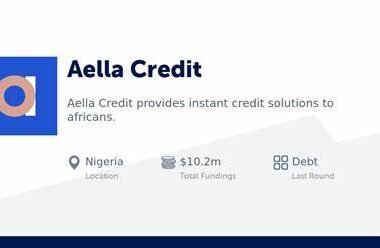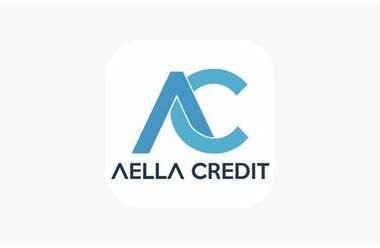The feeling of financial pressure is something we all experience at some point—whether it’s to cover a medical emergency, pay for education, or manage personal expenses. In such moments, taking out a loan might seem like a lifeline. However, once you’ve secured the loan, the next question arises: how do lenders calculate the interest on loans?
Understanding how lenders calculate interest is crucial because it directly impacts how much you’ll pay over time. Interest isn’t just an extra fee; it’s the cost of borrowing money, and knowing how it works can help you plan for the future and avoid unexpected financial burdens.
You might be feeling confused or overwhelmed, but don’t worry, this article is designed to break down the complex process of loan interest calculation in a way that’s easy to understand. We’ll walk through everything you need to know, from how interest is calculated to how you can plan your repayments. By the end, you’ll have a clear understanding of the factors at play when you take out a loan, and you’ll be ready to make smarter financial decisions.
You can also read:
- How to Get Fast Funds with Instant Approval and Easy Terms!
- Are There Agricultural Loans for Farmers in Nigeria?
- How Can Rural Farmers Access Loans Without Bank Accounts?
- What Types of Loans Are Available to Nigerians, and Which One Suits My Needs Best?
- How Can I Manage My Loan Repayment If I Have a Fluctuating Income?
- How to Get Quick Loan Approval Without Stress in Nigeria
- How to Apply for Loans Without Being Rejected in Nigeria
- Proven Steps to Secure a Loan Without Collateral in Nigeria
- The Secrets to Getting Your Loan Approved on the First Attempt
- How to Borrow Money Safely Without Falling for Scams
- How to Access Loans Fast Without Long Bank Delays
- How to Apply for a Loan Without a Guarantor or BVN
- The Easiest Way to Get a Loan Without Collateral in Nigeria
- Best Loan Options in Nigeria for People with No Steady Income
- Smart Strategies to Get Your Loan Approved Faster
- How to Access Loans for Your Business Without High Interest Rates
- Top Mistakes to Avoid When Applying for a Loan in Nigeria
- How to Borrow Money Without Ruining Your Reputation
Why Do You Need Money?
Before diving into how lenders calculate interest, let’s take a moment to consider why you might need money in the first place. Whether it’s for an urgent expense, buying a car, or funding your education, loans can help bridge the financial gap. However, the reason you need the loan also helps determine how much you should borrow, how to plan for repayment, and how interest will affect your total loan cost.
The key to borrowing responsibly is to ensure that the loan serves its intended purpose. This will help you stay focused on your goal and avoid unnecessary financial stress later on. Once you know why you need the loan, you’ll be better prepared to assess whether borrowing is the right choice for you.
How Do Lenders Calculate Interest?
Lenders calculate interest on loans using different methods, but the most common types are:
1. Simple Interest
Simple interest is calculated only on the principal amount (the original loan amount). This means that the interest does not compound over time. For example, if you borrow N100,000 at a 10% interest rate for one year, the interest will be N10,000 (N100,000 x 10%). The total amount you’ll need to repay at the end of the year will be N110,000.
2. Compound Interest
Compound interest, on the other hand, is calculated on both the principal amount and any accumulated interest from previous periods. This means that the interest amount grows over time, making it a more expensive way of calculating interest. For example, if you borrow N100,000 at 10% interest, the first year’s interest will be N10,000, but in the second year, the interest will be calculated on N110,000 (the initial principal plus the first year’s interest), leading to a higher interest payment.
3. Reducing Balance Method
This method is commonly used for loans that require repayments over time, such as personal loans. The interest is calculated on the outstanding balance of the loan, so as you repay the loan, the interest is charged on a decreasing amount. This can be more affordable over time compared to compound interest, as you pay less interest as the loan balance decreases.
How Can You Plan for Loan Repayment?
Taking out a loan is only half the battle. Planning for repayment is the key to making sure you don’t get caught in a financial spiral. Here are a few steps you can take to plan effectively:
1. Understand the Loan Terms
Before accepting a loan, make sure you fully understand the repayment terms. This includes the interest rate, repayment schedule, and any additional fees or charges. Some loans have daily or monthly repayment schedules, so make sure the terms align with your income and cash flow.
2. Budget for Loan Repayments
Once you know how much you need to repay each month, create a budget. Allocate a portion of your income specifically for loan repayment. This will help you avoid using that money for other expenses.
3. Consider Early Repayment
If possible, aim to repay the loan earlier than the scheduled term. This can save you money on interest, especially if your loan uses the reducing balance method. Some lenders offer early repayment options without penalties.
Loan Options from AellaLoans
If you’re considering taking out a loan, AellaLoans is one of the reliable providers in Nigeria. Below is a table showing the loan options AellaLoans offers, along with their interest rates, eligibility requirements, and repayment methods:
| Loan Type | Interest Rate | Eligibility Criteria | Repayment Period |
|---|---|---|---|
| Personal Loan | 10% – 30% per annum | Age 21+, valid ID, regular income or business operation | 3 to 12 months |
| Emergency Loan | 15% – 35% per annum | Valid ID, urgent financial need, steady income or business | 1 to 6 months |
| Business Loan | 12% – 20% per annum | Registered business, proof of income, bank statement | 6 to 18 months |
Note: Always verify terms and conditions on AellaLoans’ official website.
Advice from Edujects:
“On no account should you take beyond what you can repay. This is an opportunity, but don’t overuse it to affect you just because you have access to it freely. Don’t borrow more than the capacity of your income expectations. Endeavor to use the money for its intended purpose. Learn from the business side of the Igbo community—Igbo people would never borrow money for anything other than the specific purpose it was meant for. Anyone can have an emergency, and emergencies require specific solutions. When you receive a loan, use it to fix the emergency. Once the emergency is fixed, start planning for repayment immediately. This will build trust and integrity, making it easier for others to access emergency funds when needed. Paying back on time is crucial to helping companies like AellaLoans continue to support others in their time of need. Don’t wait for them to chase you—plan and pay on time.”
Understanding how lenders calculate interest on loans is key to making informed financial decisions. Whether you’re applying for a personal loan, business loan, or emergency loan, knowing the ins and outs of interest calculation will help you manage your finances better. At the same time, make sure you’re always clear on the repayment terms and plan ahead to avoid falling into debt.
Loans are tools that can help you navigate financial challenges, but they must be used responsibly. By planning your repayments and being disciplined with your loan, you can minimize the financial burden and build a strong financial future.






